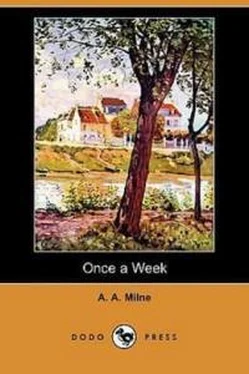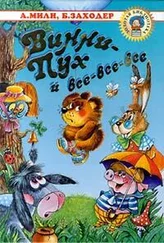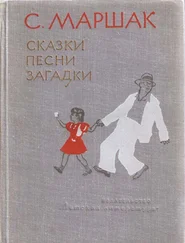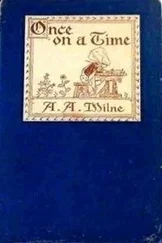"At least, it's best to have two. Sometimes you lose one. They're very useful at golf. In fact, absolutely necessary."
"Have you got two?"
"Yes."
I looked at Dennis's enormous hands spread out on his knees.
"Is it 'pud'?" I asked. "It is? Are those the two? Good heavens!" and I gave myself a mark.
A—A was the next, and we had the old Emu trouble.
"Mine," said Norah—"mine is rather a meaningless word."
"'Abracadabra,'" shouted everybody.
"Mine," said Miss Gerald, "is a very strange word, which―"
"'Abracadabra,'" shouted everybody.
"Mine," said Gerald, "is a word which used to be―"
"'Abracadabra,'" shouted everybody.
"Mine," I said to save trouble, "is 'Abracadabra.'"
"Mine," said Dennis, "isn't. It's what you say at golf when―"
"Oh lor!" I groaned. "Not again."
"When you hole a long putt for a half."
"You generally say, 'What about that for a good putt, old thing? Thirty yards at least,'" suggested Gerald.
"No."
"Is it—is it 'Alleluia'?" suggested Mrs. Gerald timidly.
"Yes."
"Dennis," I said, "you're an ass."
* * * * *
"And now," said Norah at the end of the game, "who's won?"
They counted up their marks.
"Ten," said Norah.
"Fifteen," said Gerald.
"Three," said his wife.
"Fourteen," said Dennis.
They looked at me.
"I'm afraid I forgot to put all mine down," I said, "but I can easily work it out. There were five words, and five definitions of each word. Twenty–five marks to be gained altogether. You four have got—er—let's see—forty–two between you. That leaves me―"
"That leaves you minus seventeen," said Dennis. "I'm afraid you've lost, old man." He took up the shovel and practised a few approach shots. "It's rather a good game."
I think so too. It's a good game, but, like all paper games, its scoring wants watching.
I was showing Celia a few fancy strokes on the billiard–table. The other members of the house–party were in the library, learning their parts for some approaching theatricals—that is to say, they were sitting round the fire and saying to each other, "This is a rotten play." We had been offered the position of auditors to several of the company, but we were going to see Parsifal on the next day, and I was afraid that the constant excitement would be bad for Celia.
"Why don't you ask me to play with you?" she asked. "You never teach me anything."
"There's ingratitude. Why, I gave you your first lesson at golf only last Thursday."
"So you did. I know golf. Now show me billiards."
I looked at my watch.
"We've only twenty minutes. I'll play you thirty up."
"Right–o. What do you give me—a ball or a bisque or what?"
"I can't spare you a ball, I'm afraid. I shall want all three when I get going. You may have fifteen start, and I'll tell you what to do."
"Well, what do I do first?"
"Select a cue."
She went over to the rack and inspected them.
"This seems a nice brown one. Now then, you begin."
"Celia, you've got the half–butt. Put it back and take a younger one."
"I thought it seemed taller than the others." She took another. "How's this? Good. Then off you go."
"Will you be spot or plain?" I said, chalking my cue.
"Does it matter?"
"Not very much. They're both the same shape."
"Then what's the difference?"
"Well, one is more spotted than the other."
"Then I'll be less spotted."
I went to the table.
"I think," I said, "I'll try and screw in off the red." (I did this once by accident and I've always wanted to do it again.) "Or perhaps," I corrected myself, as soon as the ball had left me, "I had better give a safety miss."
I did. My ball avoided the red and came swiftly back into the left–hand bottom pocket.
"That's three to you," I said without enthusiasm.
Celia seemed surprised.
"But I haven't begun yet," she said. "Well, I suppose you know the rules, but it seems funny. What would you like me to do?"
"Well, there isn't much on. You'd better just try and hit the red ball."
"Right." She leant over the table and took long and careful aim. I held my breath…. Still she aimed…. Then, keeping her chin on the cue, she slowly turned her head and looked up at me with a thoughtful expression.
"Oughtn't there to be three balls on the table?" she said, wrinkling her forehead.
"No," I answered shortly.
"But why not?"
"Because I went down by mistake."
"But you said that when you got going, you wanted― I can't argue bending down like this." She raised herself slowly. "You said― Oh, all right, I expect you know. Anyhow, I have scored some already, haven't I?"
"Yes. You're eighteen to my nothing."
"Yes. Well, now I shall have to aim all over again." She bent slowly over her cue. "Does it matter where I hit the red?"
"Not much. As long as you hit it on the red part."
She hit it hard on the side, and both balls came into baulk.
"Too good," I said.
"Does either of us get anything for it?"
"No." The red and the white were close together, and I went up the table and down again on the off–chance of a cannon. I misjudged it, however.
"That's three to you," I said stiffly, as I took my ball out of the right–hand bottom pocket. "Twenty–one to nothing."
"Funny how I'm doing all the scoring," said Celia meditatively. "And I've practically never played before. I shall hit the red hard now and see what happens to it."
She hit, and the red coursed madly about the table, coming to rest near the top right–hand pocket and close to the cushion. With a forcing shot I could get in.
"This will want a lot of chalk," I said pleasantly to Celia, and gave it plenty. Then I let fly….
"Why did that want a lot of chalk?" said Celia with interest.
I went to the fire–place and picked my ball out of the fender.
"That's three to you," I said coldly. "Twenty–four to nothing."
"Am I winning?"
"You're leading," I explained. "Only, you see, I may make a twenty at any moment."
"Oh!" She thought this over. "Well, I may make my three at any moment."
She chalked her cue and went over to her ball.
"What shall I do?"
"Just touch the red on the right–hand side," I said, "and you'll go into the pocket."
"The right –hand side? Do you mean my right–hand side, or the ball's?"
"The right–hand side of the ball, of course; that is to say, the side opposite your right hand."
"But its right–hand side is opposite my left hand, if the ball is facing this way."
"Take it," I said wearily, "that the ball has its back to you."
"How rude of it," said Celia, and hit it on the left–hand side, and sank it. "Was that what you meant?"
"Well … it's another way of doing it."
"I thought it was. What do I give you for that?"
" You get three."
"Oh, I thought the other person always got the marks. I know the last three times―"
"Go on," I said freezingly. "You have another turn."
"Oh, is it like rounders?"
"Something. Go on, there's a dear. It's getting late."
She went, and left the red over the middle pocket.
"A–ha!" I said. I found a nice place in the "D" for my ball. "Now then. This is the Gray stroke, you know."
I suppose I was nervous. Anyhow, I just nicked the red ball gently on the wrong side and left it hanging over the pocket. The white travelled slowly up the table.
"Why is that called the grey stroke?" asked Celia with great interest.
"Because once, when Sir Edward Grey was playing the German Ambassador—but it's rather a long story. I'll tell you another time."
Читать дальше












